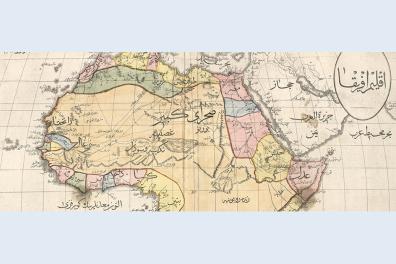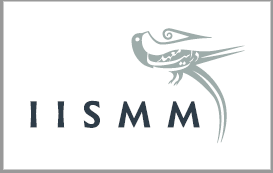Arabités/africanités au Soudan: représentations et enjeux d'une construction identitaire" study day, July 4

Organized by the Centre de Recherche Moyen-Orient, Méditerranée - CERMOM (Inalco) in partnership with the Institut d'étude de l'Islam et des sociétés du monde musulman - IISMM (EHESS-CNRS).
Monday, July 4, 2022 - 10:00-17:30 - Maison de la Recherche - Auditorium Dumézil / and online
Inalco - 2, rue de Lille - Paris 7ème
Modalities: face-to-face and distance learning
- To attend the event, registration is closed / Pour assister sur place à l'évenement, les inscriptions sont closes.
- To follow the event online, here is the link / Pour suivre à distance cet événement, voici le lien.
Arabités/africanités au Soudan: représentations et enjeux d'une construction identitaire
Languages: French and English
Presentation
The aim of this study day is to bring together several researchers working on Sudan through an interdisciplinary perspective crossing literary studies, linguistics and social sciences, around the issue of dealing with the plural identity of contemporary Sudan. Central themes such as education, language, literature, museum heritage, music, social and revolutionary movements, regional immigration and population displacement will be addressed. These themes will be approached from two perspectives. The first is that of institutional practices and discourses, with a reflection on history teaching policies over the last twenty years (2011-2021), language policies in particular since the creation of the concept of "indigenous language" in 2005, migration policies concerning in particular the reception of Eritreans and museum policies which, since the revolution of 2019, seem to want to take into account the latter's aspiration for a "New Sudan" transcending ethnic and regional cleavages. The second perspective, in constant dialogue with the first, is that of artistic, literary and revolutionary counter-discourses: what role has identity-based thinking played in the popular uprisings of recent years? How does literature counter the binary simplification of the country's identities and its conflicts? How do artistic productions contribute to the writing of history? We hope this meeting will give rise to a rich and constructive exchange, and contribute to strengthening interdisciplinary collaboration around the major topic of identity construction in post-colonial East Africa.
The objective of this study day is to let several researchers working on Sudan meet each other through an interdisciplinary perspective combining literary, linguistic and social science studies, around the issue of plural identity in contemporary Sudan. Thus, central themes such as education, language, literature, museum heritage, music, social and revolutionary movements, regional immigration and population displacements will be adressed. These themes will be approached from two points of view. The first is that of institutional practices and discourses, with a reflection on history teaching policies over the past twenty years (2011-2021), language policies in particular since the creation of the concept of " indigeneous language " in 2005, migration policies concerning in particular the reception of Eritreans and museum policies which, since the 2019 revolution, seem to want to take into account the latter's aspiration to a " New Sudan " going beyond ethnic and regional divisions. The second point of view, in constant dialogue with the first, is that artistic, literary and revolutionary counter-discourses : what is the role reflection on identity in the popular uprisings of recent years ? How does literature oppose the binary simplification of the country's identities and its conflicts? How do artistic productions contribute to the writing of History? We hope that this meeting will give rise to a rich and constructive exchange and that it will contribute to strengthening interdisciplinary collaboration around the major subject of identity building in post-colonial Sudan and more broadly East Africa.
Organization : Marcella Rubino (CERMOM, Inalco)
Contact : marcella.rubino@inalco.fr
